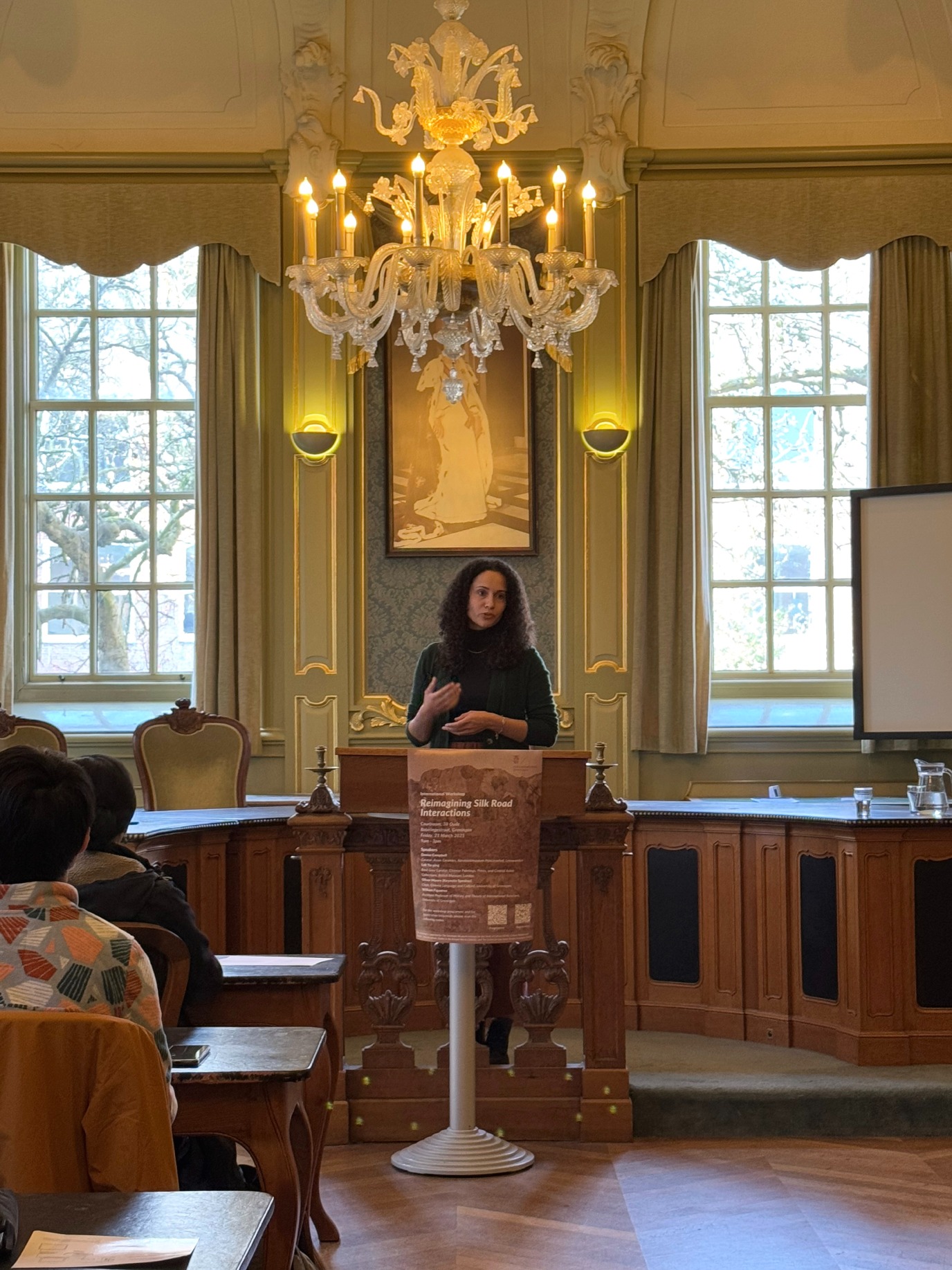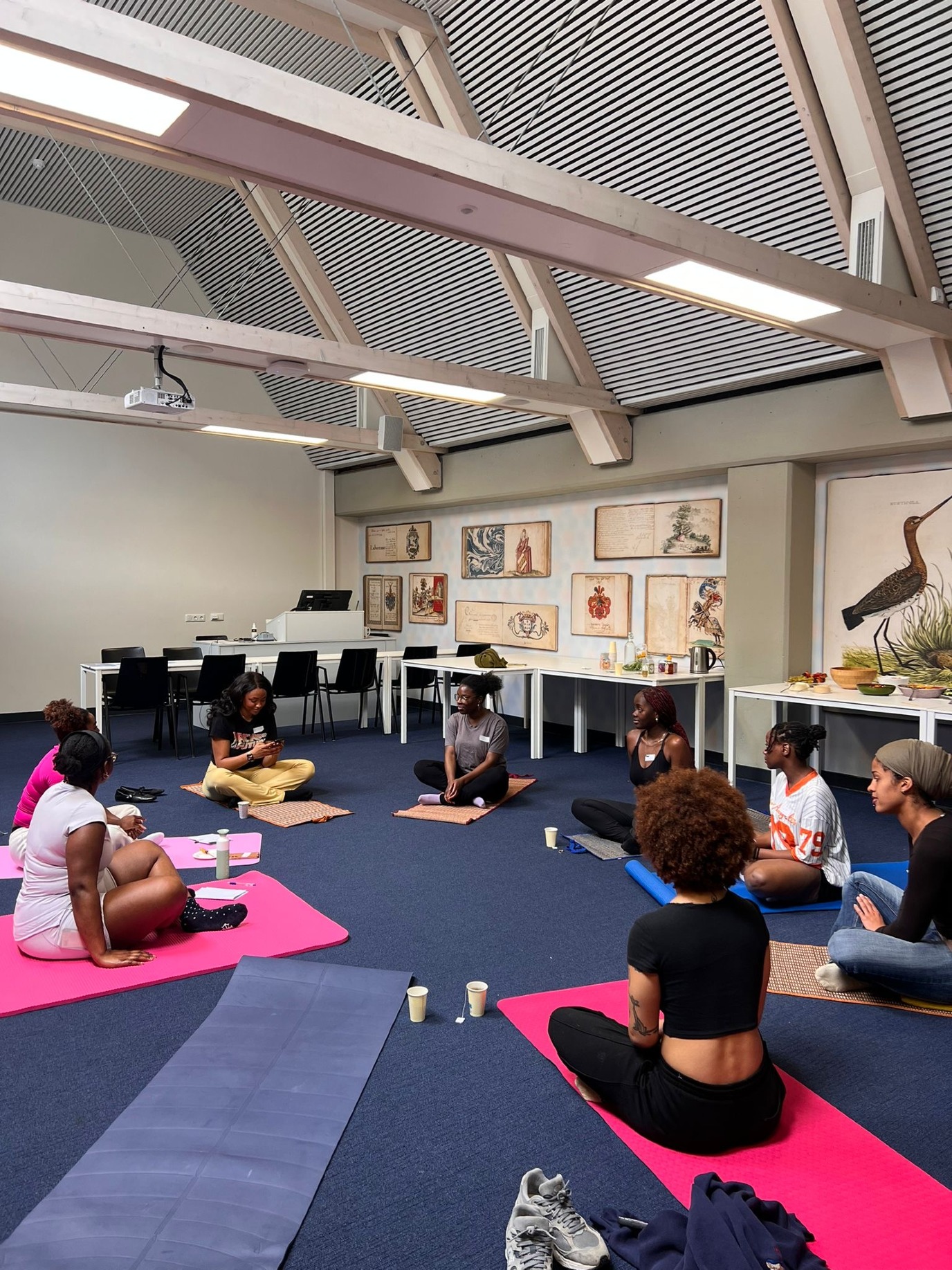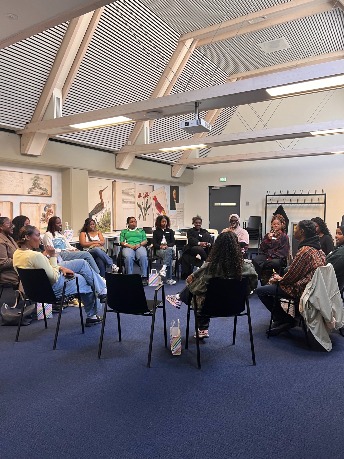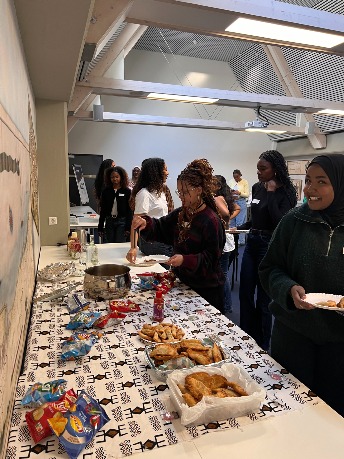Grassroots Initiative Grants
The Diversity & Inclusion Office offers small grants for student initiatives that advance diversity, equity and inclusion at the UG in an innovative way. Grassroots initiatives are initiatives that are initiated from the community itself. They are bottom-up initiatives, instead of top-down initiatives.
Initiatives should identify and address a challenge around (any element of) diversity, inclusion, equity or belonging at the University. Grants are awarded to those who aim to have a direct impact on the (whole) University.
For example, the funds can be applied for the following:
-
Developing a podcast featuring the voices of first generation students
-
Establishing an online course to teach about LGBTQIA+ allyship in the classroom
-
Drawing on the experience of the UG’s disability community to produce disability etiquette training videos
-
Organizing an activity with an invited speaker
-
Organizing a support group for students with chronic health issues
-
Organizing a panel discussion to bridge the connection between international and Dutch students
-
Or, preferably, something innovative you come up with. Feel free to use your creativity!
The Grassroots Initiative Grants were first delivered in 2024. Read below to find out more about the winning grant projects.
2025 Grant Winners
Reimagining Silk Road Interventions
Reimagining Silk Road Interactions: An Interdisciplinary Workshop
Project organizer: Maya Xinyu Dong
Maya wrote:
“On March 21, 2025, the University of Groningen hosted Reimagining Silk Road Interactions, a one-day interdisciplinary workshop that brought together early researchers, academic staff, and museum professionals to collectively rethink global cultural exchange, with a specific focus on the Silk Road discourses within East Asia. The initiative responded to a growing recognition that diversity of perspectives, particularly non-Western ones, is essential for a truly inclusive academic dialogue.
The event featured presentations from scholars at the University of Groningen, the British Museum, and the Keramiekmuseum Princessehof. Topics ranged from Tang dynasty urban planning to museum diplomacy and curatorial storytelling. The program concluded with a guided excursion to the Wu Zetian exhibition in Leeuwarden, deepening participants’ understanding and engagement of how heritage and historical narratives are presented within contemporary Dutch museology.
22 people attended the keynote lectures; later sessions drew 16–18 on average, with 7 joining online. The curated museum visit involved 16 participants, including students, faculty, and curators from the Rijksmuseum and Leiden University Asian Studies Faculty.
The Grassroots Grant from the D&I Office covered essential costs such as travel for the excursion, speaker honoraria, and catering. These funds ensured equitable access for students from diverse socioeconomic backgrounds and fostered a more comfortable, welcoming atmosphere that encouraged open and active participation.
Outcomes and Insights
The workshop successfully created a safe, intellectually vibrant space where students and professionals could contribute on equal footing. One participant shared, “It was particularly fruitful when the workshop combined theoretical insights with practical excursions. I liked the structure.” Another noted that the interdisciplinary format “helped dismantle the usual academic hierarchy, making space for lived experience as well as a communication of academic and professional perspectives.”
In line with the university’s commitment to inclusion as a foundation for academic and personal flourishing, the workshop brought together participants from diverse disciplines, backgrounds, and levels of experience. It highlighted the often-overlooked cultural, political, and historical dimensions of Asia in global narratives, repositioning them as essential to heritage discourse within the Faculty of Arts, rather than peripheral.
Next Steps
We plan to launch a student-led reading group and co-organize a follow-up event on inclusive curatorial practices in Fall 2025. Participants expressed a strong need for more representation of non-Western histories in curricula and more spaces to engage with their cultural heritage. The D&I Office could support these efforts by promoting inclusive content development, funding student-led programming, and continuing to lower access barriers for underrepresented groups.”

Support Group Black Women at UG
Support group for Black women at UG
Project organizers: Ashley Monteiro & Marianne Slavenburg
Support group for Black women at UG organized two events in order to create an inclusive speace for Black female students at UG: Playing with friends and Breathe & Be
Ashley wrote:
This spring, the Support group for Black women at UG hosted two events; Playing with Friends and Breathe & Be. Both aimed at fostering connection, joy, and well-being for Black women students at the University of Groningen. Thanks to the Diversity & Inclusion Grassroots Grant, these events offered intentional spaces for belonging, reflection, and support.
Playing with Friends brought together 13 participants for an afternoon filled with laughter, games, and meaningful connection. After a warm welcome and a short introduction about origins of the support group, participants shared their backgrounds, helping to build trust and understanding from the start. Using a short personality questionnaire completed during sign-up, participants were paired for one-on-one outdoor conversations guided by a playful booklet of icebreaker questions. These conversations created space for genuine connection and vulnerability.
After the pairings, everyone gathered indoors for a reflection round, followed by shared snacks including Cape Verdean pastries and halal-friendly options. Later, participants enjoyed nostalgic childhood games like Uno and Ludo, and each received a goodie bag filled with small, joyful items reminiscent of childhood. The event emphasized the value of community and allowed many—especially newcomers to Groningen—to find familiarity and connection in a safe and joyful setting.
Breathe & Be, held during exam season, welcomed seven participants for a slower-paced afternoon of mindfulness and conversation. The session opened with a written check-in and group reflection, followed by a 20-minute guided meditation that left participants feeling calm and grounded. Over tea and nourishing snacks, participants engaged in conversations around rest, burnout, and the importance of emotional well-being.
Together, the group co-created a “Support Wall,” filled with notes of encouragement and personal strategies for managing stress. The smaller size of the event allowed for deeper dialogue and closer connection. At the end, participants received self-care themed goodie bags with candles, essential oils, and face masks. To keep the support going, a WhatsApp sub-group was created for participants and others in the Black Ladies of Groningen community to stay connected.
Outcomes and Impact
Both events received positive feedback and showed how essential it is to create spaces that center the experiences of Black women. Participants expressed that they felt seen, safe, and more connected—feelings that are often missing from their broader university experience. These gatherings helped foster a deeper sense of belonging and highlighted the need for ongoing community support.
The D&I Grant made these events possible, covering materials, food, games, and the care items that contributed to a warm and inclusive atmosphere. Without this funding, creating such thoughtful, supportive experiences would not have been feasible.
Next Steps
Support group for Black women at UG aims to continue building on this momentum by organizing more events focused on well-being, cultural celebration, and community care in the next academic year. These events mark an important beginning for a long-term vision: a thriving, sustainable support network for Black women students at UG.
2026 Grassroots Initiatives Grants
The grants are available again! More information on how to apply can be found through the button below.



